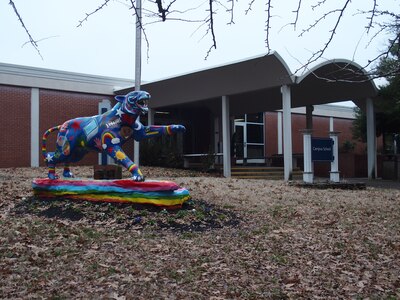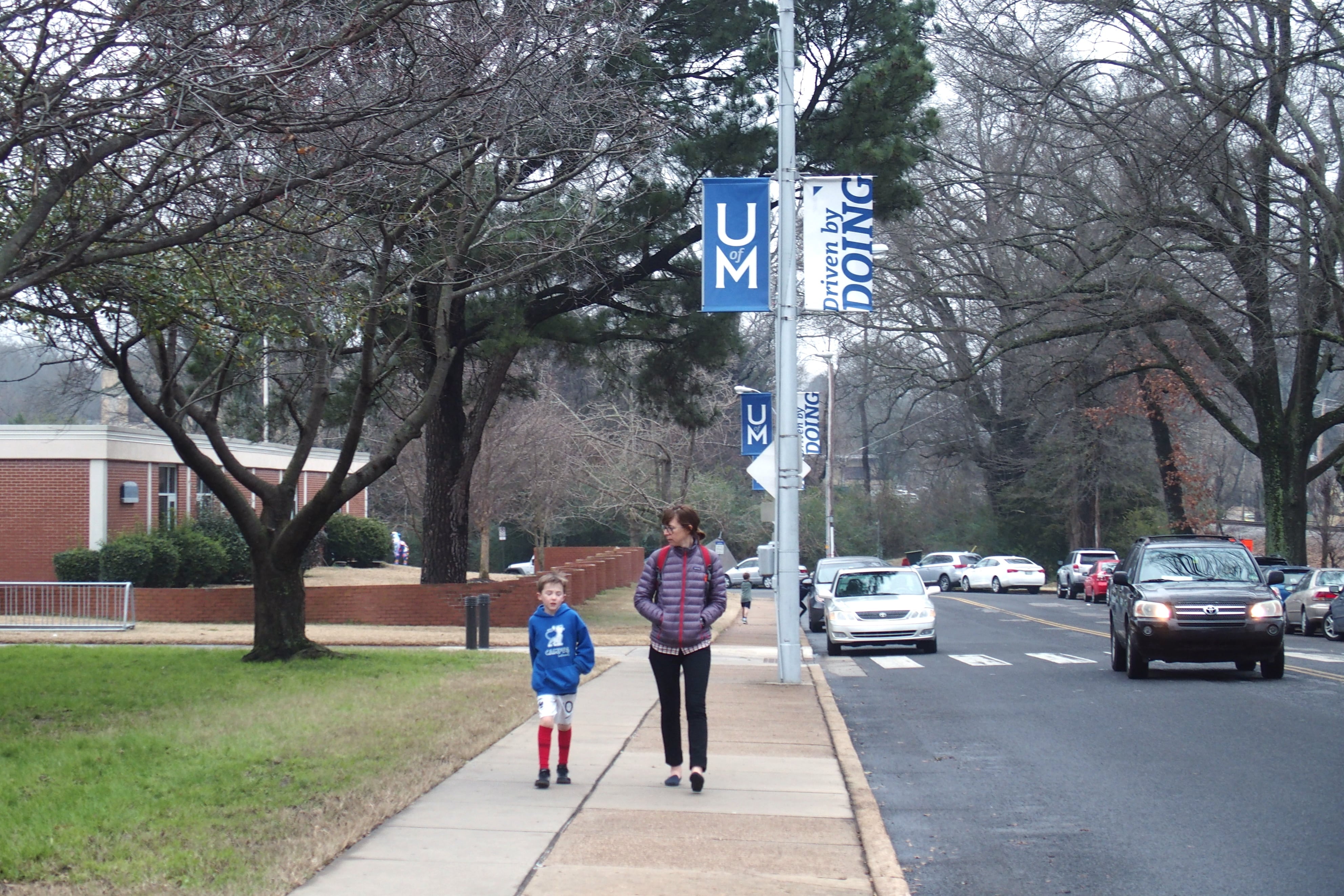Sign up for Chalkbeat Tennessee’s free daily newsletter to keep up with Memphis-Shelby County Schools and statewide education policy.
Supporters of a proposal in the legislature to recognize the University of Memphis as its own K-12 school district say the move wouldn’t lead to takeovers of schools in the surrounding Memphis-Shelby County system.
That’s critical reassurance for Memphians and district leaders concerned about the troubled legacy of state intervention in the city’s schools, from failed turnaround efforts under state takeovers of low-performing schools to a law that forced Memphis-Shelby County schools to give up control of several school buildings.
But there are still some lingering concerns about the proposal. For one thing, it threatens to disrupt the university’s existing agreement with MSCS to operate the campus schools, which runs through 2026. Others have questions about what the new district’s enrollment policies would be, and whether it would draw students and resources away from MSCS.
The MSCS board is divided on the legislation.
The proposed University Schools district would become the 10th public school operator in Shelby County, alongside MSCS, two state-run charter districts, and six smaller municipal districts.
“I have fears that this could lead to others wanting to do the same thing,” Joyce Dorse-Coleman, vice chair of the Memphis-Shelby County Schools board, told Chalkbeat.
Dorse-Coleman also questioned whether the schools now overseen by the university serve enough of the neediest families of Orange Mound, a historically Black neighborhood that borders the University area.
White sees opportunity to ‘expand what’s working’
Since its introduction earlier this month, the legislation has sailed through early hearings and become a “high priority” item for state Rep. Mark White, the East Memphis Republican who chairs the House Education Administration Committee. Sen. Brent Taylor, a Republican representing suburban Shelby County, is the Senate sponsor.
Supporters say the bill would allow the university to expand its model and offer improved educational experiences to more students. The university’s training or laboratory schools produce some of the best student test scores in the city. Students from low income families make up a small share of the enrollment, compared with other MSCS schools, but they perform better than their peers at many other schools in Memphis, according to state data.
“We just wanted to expand what’s working, and not take over anything,” White told Chalkbeat.
White removed a provision that would have allowed the university to authorize charter schools but said that could change in the future. (White told Chalkbeat he is likely setting aside another Memphis education bill that would have expanded the school board with appointed members.)
MSCS board member Mauricio Calvo thinks the legislation could be beneficial to the district.
“Our district quite frankly is way too big, whether it’s by design or by default,” Calvo told Chalkbeat. “It’s almost impossible to manage so much. So if somebody can help us, by all means do it.”
School board Chair Althea Greene also supports the bill.
University schools leader pledges a ‘slow growth’ approach
The University of Memphis’ Campus School first opened more than 100 years ago. It has more recently added early childhood education centers, a middle school, and a high school.
Sally Parish, the university official who oversees its K-12 school programming, said that the proposed University Schools district would take a “slow growth” approach that takes community needs into account.
The current contract between MSCS and the university sets a 1,050 enrollment cap for the university’s schools. It is not clear how many students they could accommodate in their current buildings if that cap were lifted.
“We are not interested in any takeovers,” Parish told lawmakers last week during a Senate Education Committee hearing. “We are not interested in opening a school next to an existing school and trying to put anyone out of business.”

The goal, Parish said, is to “meet a local need — to be able to evolve with the needs of the community.”
She likened the school’s current admissions process to those of Memphis’ optional schools, but without any academic requirements for students who apply. Those requirements were removed from a proposed enrollment process after the MSCS school board wanted the university to diversify its K-12 student body.
In an email last week, a university spokesperson said that if the schools become part of their own district, they plan to adjust enrollment rules “with the goal of increased access for all students.”
Legislation would conflict with existing contract
MSCS and the university signed a new contract in 2021, when the school board approved plans to add high school grades on campus. The contact runs through fall 2026.
Some lawmakers and MSCS representatives are concerned that the legislation — which would allow University Schools to operate as its own district in time for the 2024-25 school year — would disrupt that agreement.
Tony Thompson, a lobbyist for Memphis-Shelby County Schools, acknowledged that relations between the district and university have worsened recently but said overriding the contract with legislation would be unconstitutional. “We should be in a partnership situation,” Thompson told lawmakers.
He pointed to comments by Sen. Todd Gardenhire, a Chattanooga Republican who chairs the Senate Judiciary Committee.
Gardenhire ultimately voted for the legislation in the education committee last week, but said, “We don’t pass laws here that are retroactive. We cannot undo a contract that’s been signed before we pass a law.”
Sen. Raumesh Akbari, a Memphis Democrat who voted “present” on the proposal in the education committee hearing, said “it would ease a lot of minds” if the legislation took effect after the contract expired.
District status could bring buildings funds
Making University Schools its own district would not materially change funding levels for student instruction, said Michael Whaley, a Shelby County Commissioner and advisory member for the University of Memphis’ K-12 schools. Under the current structure, the university schools receive their allocation of state and local per-pupil funding through the contract with the Memphis school district.
“The funds follow the students, and they would continue to do so,” Whaley told Chalkbeat. “The county would simply route the funds directly” to the new school district.
But capital funds — for building improvements and construction projects — are a different matter, Whaley said.
As a designated district, University Schools would likely be eligible, alongside MSCS and the other school districts, for a proportional share of capital funds from the county. The change would elevate a University of Memphis K-12 schools district as another competitor for funds that MSCS has lobbied for to pay for its effort to close or upgrade aging schools and to build new ones.
Currently, the Memphis district’s needs often dictate the total amount of money set aside for school building projects across Shelby County’s districts. While the university has sought funds for improving its K-12 school buildings, MSCS hasn’t brought those requests to the county, Whaley said.
White, the bill’s House sponsor, said last week he was still clarifying how capital funding would work.
You can track the legislation on the General Assembly’s website. It still would need votes from both the full House and Senate and the governor’s signature to become law.
Laura Testino covers Memphis-Shelby County Schools for Chalkbeat Tennessee. Reach Laura at LTestino@chalkbeat.org.






